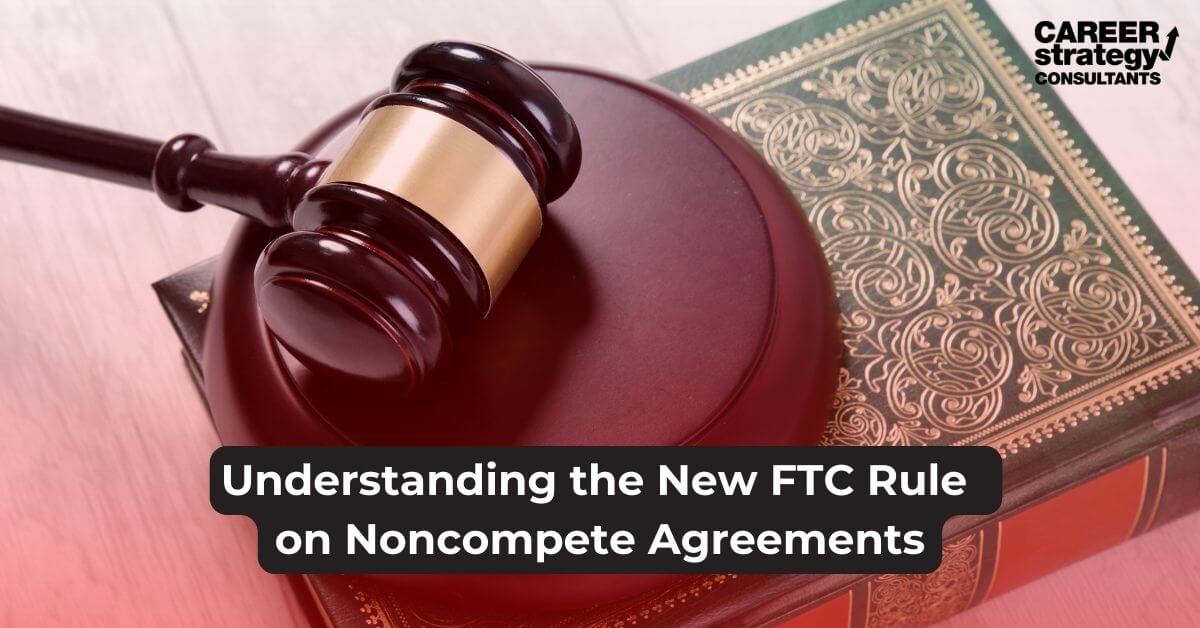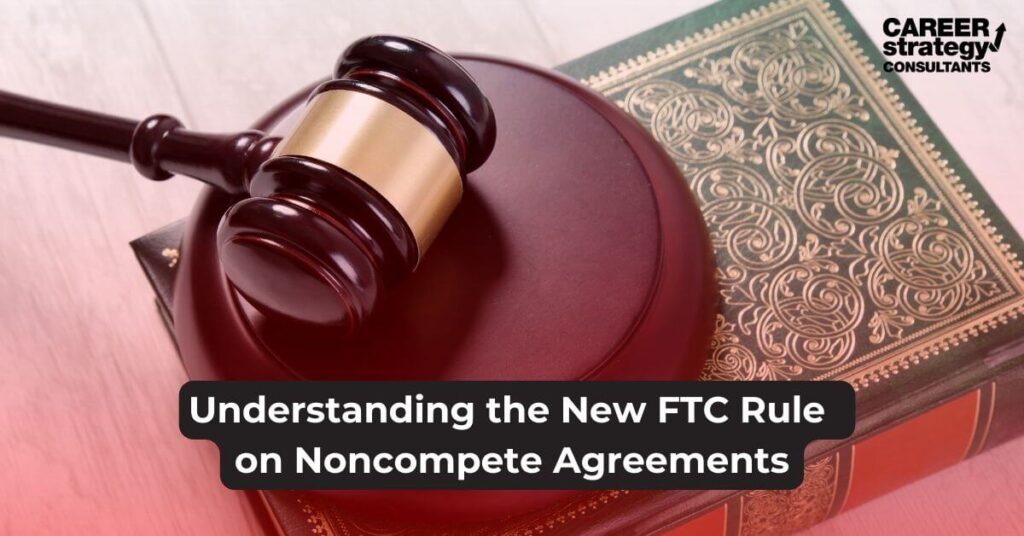Understanding the New FTC Rule on Noncompete Agreements


The Sweeping Changes Brought by the FTC
On April 23, 2024, the U.S. Federal Trade Commission (FTC) instituted a major shift in employment law by finalizing a rule that bans most new noncompete agreements nationwide. This rule significantly impacts millions of workers by rendering existing noncompete agreements unenforceable, except those that cover a small fraction of senior executives. Specifically, this exception applies to executives earning over $151,164 annually who hold a policy-making position, a group constituting less than 0.75 percent of all workers.
The rule, which will take effect 120 days after its publication in the Federal Register, also mandates that employers notify current and former employees that their noncompete clauses are null. This decisive move by the FTC aims to enhance job mobility, increase wage competition, and foster a more dynamic and innovative economic environment.
Legal Challenges and Employer Response
The FTC’s decision is not without controversy. The U.S. Chamber of Commerce has already announced plans to challenge the rule, indicating that the battle over noncompete agreements may eventually escalate to the Supreme Court. These legal proceedings are expected to delve into whether the FTC overstepped its constitutional authority—a question raised by the new Republican Commissioners and other critics who believe such regulatory actions should be left to Congress or individual states.
Employers, especially those in industries like technology and healthcare where noncompetes are prevalent, are now faced with the need to reassess their strategies for protecting intellectual property and managing competition. The Society for Human Resource Management (SHRM), for instance, has expressed its opposition to the FTC’s blanket ban, advocating instead for a balanced approach that protects both worker mobility and employer interests.
Practical Steps for Employers Moving Forward
- Legal Consultation: Employers should immediately seek legal counsel to understand the implications of the FTC rule for their specific circumstances and prepare for the potential legal challenges ahead.
- Revising Employment Contracts: It is crucial for employers to review and revise their existing employment and noncompete agreements. Given the rule’s immediate impact on these contracts, replacing or amending them with compliant alternatives like nondisclosure and nonsolicitation agreements may be necessary.
- Adapting Business Strategies: Businesses should consider adjusting their strategies to safeguard confidential information and maintain competitive advantages without relying on noncompete clauses. This may involve enhancing the security of trade secrets and redefining access to sensitive information.
- Communicating with Employees: Effective communication with current and former employees regarding the invalidation of their noncompete clauses is not only a requirement but also a best practice to maintain trust and transparency in employer-employee relationships.
- Monitoring Legal Developments: Given the anticipated legal challenges and potential delays in the rule’s enforcement, employers must stay informed about new developments and be ready to adapt their practices accordingly.
Conclusion
The FTC’s new rule on noncompete agreements marks a significant policy shift intended to promote economic liberty and competition. While it promises greater freedom and opportunity for workers, it also poses substantial challenges for employers, who must navigate the legal complexities and rethink how they protect business interests. As the situation evolves, both employers and employees should remain vigilant and informed to understand how these changes will affect the landscape of employment law and business practice.

More Than Just Staffing
For Employers
For Individuals
